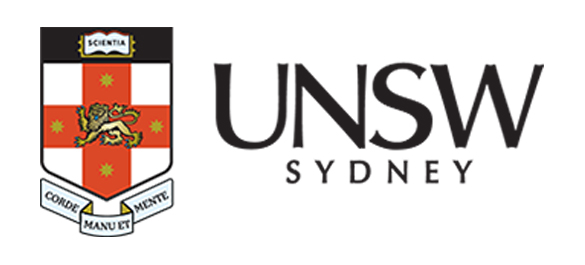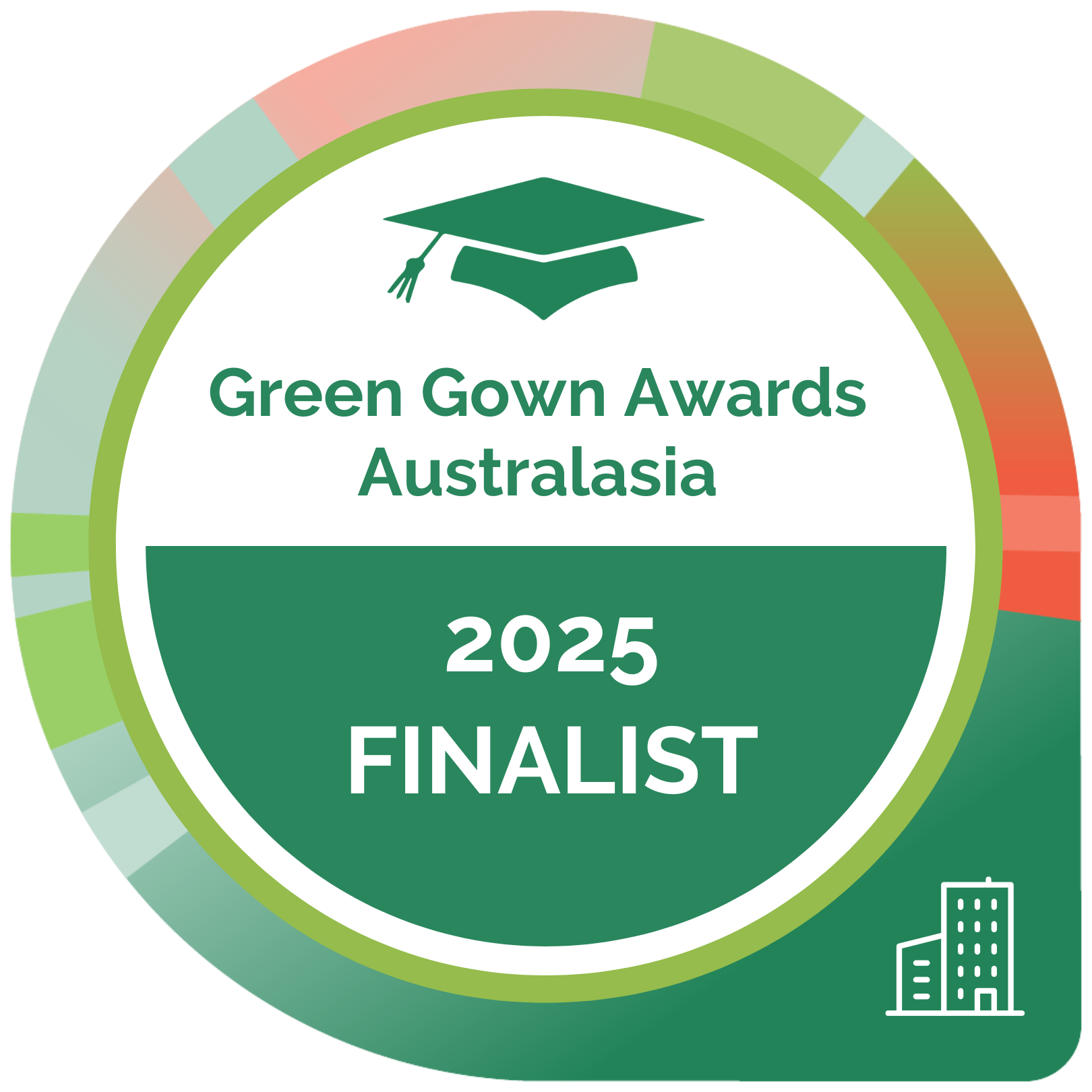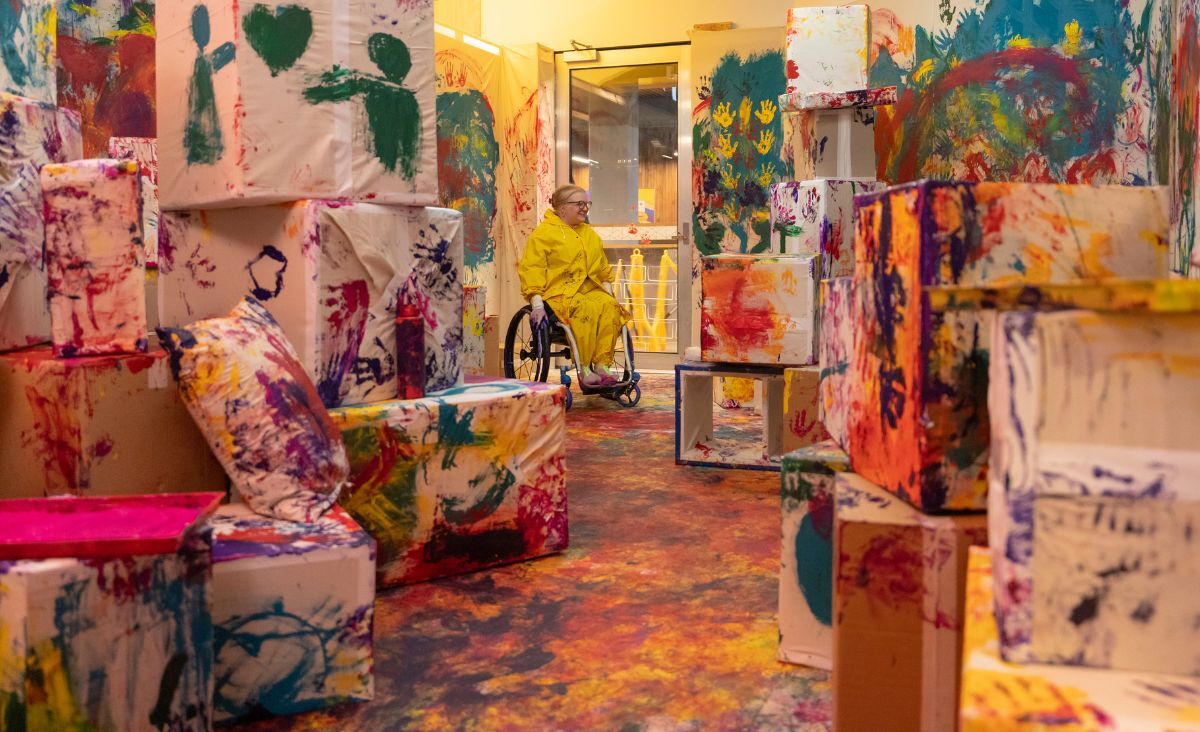Diversity Equity & Inclusion category
Led by Professor Heidi Norman, a descendant of the Gomeroi people, the Indigenous Land and Justice Research group at UNSW is enabling Aboriginal leadership in Australia’s clean energy transition. By co-developing research and policy with Aboriginal communities, the initiative supports community-led planning, increases First Nations ownership in renewable energy projects, and ensures that Aboriginal voices are central in national energy strategies. Their work has influenced federal and state energy policy, empowered Local Aboriginal Land Councils to explore renewable energy options, and catalysed a cross-disciplinary collaboration at UNSW. It represents a transformative model for decolonising sustainability research and advancing Indigenous rights in climate action.

Environmental and Social Benefits
- Supports the clean energy transition on Aboriginal land by co-developing renewable energy strategies with Local Aboriginal Land Councils (LALCs), beginning with community leadership, consent, and participation. This approach strengthens climate resilience and enhances energy security, ensuring development on Country is community-led and culturally grounded.
- Has led to policy reforms that promote First Nations equity and ownership in renewable energy projects—supporting systemic change in how Aboriginal rights are recognised in climate and energy policy.
- Empowers Aboriginal communities through tailored workshops, practical tools, and assessment methodologies that support informed, culturally grounded, and economically beneficial decision-making about energy development on Country. By enabling meaningful participation in the energy transition, particularly given that approximately 50% of renewable energy projects are proposed to be based on Aboriginal land, this work contributes to a fairer, more equitable transition and helps ensure its success.
Leadership and Engagement
- Informed national policies including the First Nations Clean Energy Strategy and NSW Government renewable energy guidelines—embedding First Nations equity as a core project assessment criterion.
- Delivered knowledge exchange workshops with LALCs across regional NSW, with ILJ teams including Indigenous students, engineers, and legal and energy experts working directly with communities.
- Championed rights-based approaches to climate and energy at global forums, such as the 2025 Right Here Right Now Global Climate Summit co-convened by the University of Oxford and UN Human Rights.
Significance to the Sector
- Offers a scalable, interdisciplinary model for university–community–government collaboration that embeds cultural safety and First Nations self-determination into sustainability transitions.
- Produced replicable tools and resources—such as a renewable energy land assessment methodology—shared via reports, fact sheets, accessible mapping platform, and webinars for use by other Aboriginal communities and researchers.
- Demonstrates how research institutions can align societal impact with Indigenous justice, advancing net-zero goals while deepening inclusion and capacity-building for Aboriginal partners. At the same time, it strengthens universities’ understanding of their role as public institutions, building internal capacity to respond to the social justice and cultural dimensions of the energy transition.
Wider Societal Impact
- Exemplifies how universities can walk alongside Aboriginal communities in ways that are grounded in respect, reciprocity and societal impact.
- Helps close the equity gap through Aboriginal-led participation in clean energy, aligning economic, environmental, and social benefits.
- Increases employment pathways for Indigenous students and graduates in renewable energy and policy sectors and helps train non-Indigenous students to be culturally responsive and contribute to the future clean energy workforce.
- Grows capacity for academics and university teams to work in new and different ways and contribute to positive societal impact.
- Promotes systemic change through advocacy, reshaping how governments and developers engage with First Nations in climate and energy transitions.
Top 3 learnings
Supported by

Category finalists
Diversity Equity & Inclusion
Diversity Equity & Inclusion
Diversity Equity & Inclusion/Winner
Diversity Equity & Inclusion/Winner
Past winners
Benefitting Society/Winners
Benefitting Society/Winners
Diversity, Equity & Inclusion in Sustainability/Winners
Diversity, Equity & Inclusion in Sustainability/Winners
Climate Action/Winners
Climate Action/Winners
Sustainability Institution of the Year/Winners
Sustainability Institution of the Year/Winners
Creating Impact/Winners
Creating Impact/Winners
Creating Impact/Winners
Creating Impact/Winners
Top 3 learnings
Diversity Equity & Inclusion category
Led by Professor Heidi Norman, a descendant of the Gomeroi people, the Indigenous Land and Justice Research group at UNSW is enabling Aboriginal leadership in Australia’s clean energy transition. By co-developing research and policy with Aboriginal communities, the initiative supports community-led planning, increases First Nations ownership in renewable energy projects, and ensures that Aboriginal voices are central in national energy strategies. Their work has influenced federal and state energy policy, empowered Local Aboriginal Land Councils to explore renewable energy options, and catalysed a cross-disciplinary collaboration at UNSW. It represents a transformative model for decolonising sustainability research and advancing Indigenous rights in climate action.

Environmental and Social Benefits
- Supports the clean energy transition on Aboriginal land by co-developing renewable energy strategies with Local Aboriginal Land Councils (LALCs), beginning with community leadership, consent, and participation. This approach strengthens climate resilience and enhances energy security, ensuring development on Country is community-led and culturally grounded.
- Has led to policy reforms that promote First Nations equity and ownership in renewable energy projects—supporting systemic change in how Aboriginal rights are recognised in climate and energy policy.
- Empowers Aboriginal communities through tailored workshops, practical tools, and assessment methodologies that support informed, culturally grounded, and economically beneficial decision-making about energy development on Country. By enabling meaningful participation in the energy transition, particularly given that approximately 50% of renewable energy projects are proposed to be based on Aboriginal land, this work contributes to a fairer, more equitable transition and helps ensure its success.
Leadership and Engagement
- Informed national policies including the First Nations Clean Energy Strategy and NSW Government renewable energy guidelines—embedding First Nations equity as a core project assessment criterion.
- Delivered knowledge exchange workshops with LALCs across regional NSW, with ILJ teams including Indigenous students, engineers, and legal and energy experts working directly with communities.
- Championed rights-based approaches to climate and energy at global forums, such as the 2025 Right Here Right Now Global Climate Summit co-convened by the University of Oxford and UN Human Rights.
Significance to the Sector
- Offers a scalable, interdisciplinary model for university–community–government collaboration that embeds cultural safety and First Nations self-determination into sustainability transitions.
- Produced replicable tools and resources—such as a renewable energy land assessment methodology—shared via reports, fact sheets, accessible mapping platform, and webinars for use by other Aboriginal communities and researchers.
- Demonstrates how research institutions can align societal impact with Indigenous justice, advancing net-zero goals while deepening inclusion and capacity-building for Aboriginal partners. At the same time, it strengthens universities’ understanding of their role as public institutions, building internal capacity to respond to the social justice and cultural dimensions of the energy transition.
Wider Societal Impact
- Exemplifies how universities can walk alongside Aboriginal communities in ways that are grounded in respect, reciprocity and societal impact.
- Helps close the equity gap through Aboriginal-led participation in clean energy, aligning economic, environmental, and social benefits.
- Increases employment pathways for Indigenous students and graduates in renewable energy and policy sectors and helps train non-Indigenous students to be culturally responsive and contribute to the future clean energy workforce.
- Grows capacity for academics and university teams to work in new and different ways and contribute to positive societal impact.
- Promotes systemic change through advocacy, reshaping how governments and developers engage with First Nations in climate and energy transitions.
Supported by

Related finalists
Diversity Equity & Inclusion
Diversity Equity & Inclusion
Diversity Equity & Inclusion/Winner
Diversity Equity & Inclusion/Winner
Other finalists
Climate Action

Driving Towards Tomorrow’s Campus with Vehicle-to-Grid EV Technology
As part of Flinders University’s drive to innovate and become a leader in climate action, the University launched its Vehicle-to-Grid (V2G) initiative. This involved installing and maintaining 20x V2G and smart chargers for its growing electric vehicle fleet. Leveraging 100% renewable energy generated by ENGIE’s Willogoleche Wind Farm and Flinders University’s solar power systems, this enables the storage of renewable energy in EV batteries to be discharged on campus during peak demand periods. Hence, allows for these EV fleets to operate as a Virtual Power Plant (VPP) to deliver peak demand management and optimization of behind-the-meter generation.
Overall, this initiative demonstrates the reliability and scalability of bi-directional and uni-directional smart-charging systems for EVs in reducing GHG emissions while facilitating teaching, research, and innovation opportunities. Moreover, it exemplifies a sustainable and innovative solution to scale energy storage technology and increase renewables.
Sustainability Champion – Staff/Winners

Brandan Espe
Environmental Officer / Acting Grounds Supervisor
Brandan has brought over 50 federally listed Endangered species of plant into the James Cook University living collection, many of which have never been cultivated and are found in no other collection in the world.
Of these, over half have been sustainably wild collected, inclusive of field and clone data, so they can be used for ongoing conservation, research and teaching, the remaining being sourced from private and partner organisations through favours of service or trades.
He personally funded the project from 2019-2022, until funding was awarded for the program due to its success, with the program now being engrained into the Universities landscapes for ongoing management should he leave JCU, creating a threatened species legacy collection.
The program has now expanded beyond this, with an additional 48 species now funded for further addition, some of which are only known from less than 5 sightings in history.
Student Engagement

Sustainability Leaders creating real impact!
La Trobe created a unique Sustainability Leaders volunteering program to increase engagement with students on campus and empower them to act against waste and promote sustainability. It included the following initiatives:
- Promoting the reusable crockery implementation,
- Increasing knowledge action of other students on campus to diversion comingled recycling and organic waste from landfill.
- Focus on waste audits and data,
- Improved signage through new waste posters for students living on campus.
- Collaboration with Cirka (our cleaning and waste partner) to create a waste wall and;
- Learning all things sustainability (net zero, biodiversity, waste, reusables, engagement)
These initiatives yielded significant results and with a reduction in waste contamination by almost 40% at the residential buildings and engagement with over 80 groups of people for the Reusable Revolution.
Creating Impact

Where knowledge meets habits: Empowering students for a sustainable tomorrow
Our online Sustainability Challenges offer participants an engaging, self-paced learning experience centered around a specific United Nations Sustainable Development Goal (UNSDG). Requiring minimal resourcing and at zero-cost to participants, we’ve created replicable, compact, scalable, and impactful learning opportunities that result in real impact.
The Challenges follow a structured process that moves participants from knowledge gain to simple action to celebration, to establish small but mighty habits relating to waste and carbon emissions. This approach recognises that knowledge alone is often insufficient to drive behaviour change, and that ease of action and celebration are crucial components in creating sustainable habits.
Sustainability Champion – Staff/Winners

Catherine (CeeJay) Donovan
Veterinary nurse – Anaesthesia
From establishing the Massey Vet School Green Team to leading impactful initiatives, my commitment to environmental sustainability has been making waves. With the help of my team, I have accomplished numerous small, yet meaningful actions, including integrating a sustainability lecture for final year vet students and implementing battery recycling alongside rechargeable battery use. Our larger projects encompass the introduction of green waste and soft plastics recycling bins, an energy audit resulting in power-saving measures, and playing a part in a successful rubbish audit. I spearheaded the ‘6 in 6’ campaign, empowering individuals with six simple steps for workplace sustainability. Through the SustainaVet social media pages I help to educate and inspire peers nationwide. As the Massey School of Veterinary Science sustainability champion, I had the privilege of speaking at the annual veterinary conference on sustainability in clinical practice. Currently I’m conducting pioneering research on responsible cat waste disposal. Together, we’re forging a greener future, one initiative at a time.
Sustainability Champion – Student

Louis Walmsley
SDG Coordinator Monash Association of Sustainability, Office Bearer Monash Student Association’s Environmental and Social Justice Department, Masters of Environment and Sustainability Student
Louis is an exceptional student sustainability leader at Monash University. His passion and dedication to sustainability have made a significant impact on the community. Louis’s values revolve around sustainability, which is evident upon meeting him. He actively participates in various sustainability groups, demonstrating his commitment to creating a more environmentally conscious society.
One of Louis’s notable involvements is with Precious Plastic Monash, where he organizes remarkable events and fosters collaboration among like-minded individuals, student groups, and staff. His contributions to the Monash Association of Sustainability have allowed him to conduct valuable research on plastic usage and climate action, resulting in positive changes within the university.
Through his work with the Monash Student Association, Louis has engaged hundreds of students in fun and interactive sustainability initiatives. He took the initiative to organize a sustainability food fair, which was one of the largest sustainability-related events held at Monash post-COVID. This accomplishment is a true testament to Louis’s hard work and creativity.
Louis is an outstanding student leader whose efforts in sustainability have had a lasting impact on Monash University and its community. His inspiring nature resonates with everyone who knows him.











